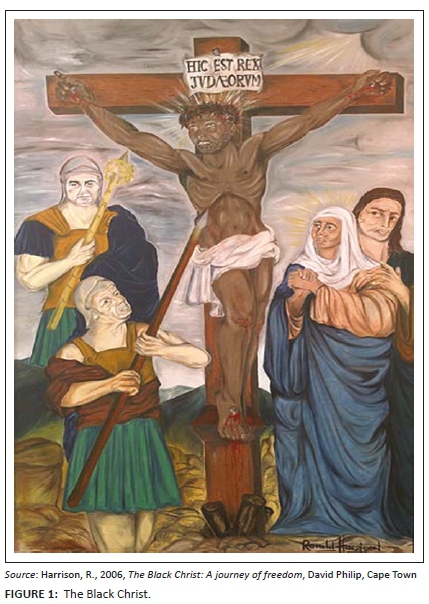Which do you want, the wisdom of the Almighty or the wisdom of the world (Satan)? Welcome to BibleStudyMinistry.com, an online Bible Study Supplement Source, let us supplement our spirit today with this scripture.
1 Corinthians 1:19-24 (KJV):
19, For it is written, I will destroy the wisdom of the wise, and will bring to nothing the understanding of the prudent.
20, Where is the wise? where is the scribe? where is the disputer of this world? hath not The Almighty made foolish the wisdom of this world?
21, For after that in the wisdom of The Almighty the world by wisdom knew not The Almighty, it pleased The Almighty by the foolishness of preaching to save them that believe.
22, For the Jews require a sign, and the Greeks seek after wisdom:
23, But we preach Christ crucified, unto the Jews a stumblingblock, and unto the Greeks foolishness;
24, But unto them which are called, both Jews and Greeks, Christ the power of The Almighty, and the wisdom of The Almighty.
What Are These Verses Saying?
Verse 19: “For it is written…”
This verse sounds like a prophecy from Isaiah 29:14, where the Almighty declares that He will destroy the so-called “wisdom” of those who are considered wise in worldly terms. The Apostle Paul appears use this to illustrate that human intellect, reasoning, and comprehension are insufficient when it comes to knowing the Almighty. In fact, the Almighty actively nullifies this type of human wisdom to show that it cannot compare to divine wisdom.
Verse 20: “Where is the wise?”
Paul challenges the intellectual elite of the time—whether they are philosophers, scholars, theologian, scribes, or debaters. He asks, where are these so-called wise men now in the face of the Almighty’s revelation? Even in our modern-day, the land promised to Abram’s descendants, the people of the covenant, and more have become an issue thanks to recent revelations.
Paul points out that the Almighty has exposed their wisdom as foolishness. This challenges the very core of worldly systems of knowledge, philosophy, theology, economics, and intellectualism, which often try to explain life without acknowledging the Almighty.
Verse 21: “For after that in the wisdom of The Almighty…”
This verse clarifies that the world, despite its intellectual pursuits, especially in the sciences and technology, failed to know the Almighty. Human wisdom could never uncover or comprehend Him on its own terms. Therefore, the Almighty, in His divine wisdom, chose what seemed like “foolishness” to the world—preaching the message of Christ, the Anointed Prince of Juda, crucified—as the means to bring salvation to those who believe.
This highlights that faith, not human reason, is the pathway to knowing the Almighty and receiving salvation. We simply have to believe the prophet’s report.
Verse 22: “For the Jews require a sign…”
Paul explains two distinct cultural perspectives. The Jews often sought miraculous signs to validate divine authority, while the Greeks (representing the nations) valued wisdom, logic, and theologic intellectual discourse. However, the message of the gospel—centered on the Anointed’s teachings, crucifixion, message, and resurrection. This did not fit into either category, Jew or Gentile.
It wasn’t the kind of miraculous sign the Jews expected, nor did it satisfy the intellectual curiosity of the Greeks. It was foolishness to them, but wisdom to the disciples of the Anointed.

Verse 23: “But we preach Christ crucified…”
To the Jews, Christ’s crucifixion was a “stumblingblock.” See what a stumbling block is here! They expected the Anointed Prince of Juda to be a powerful king who would deliver them from oppression, not someone who would die a humiliating death on a cross.
For the Greeks, it seemed like “foolishness” because their pursuit of wisdom led them to view the idea of a crucified savior as absurd. This is still the thought of many Gentile nations today. But Paul doesn’t back down from the message; he continues to preach the crucified Savior, knowing its deeper significance.
Verse 24: “But unto them which are called…”
For those who are “called” (both Jews and Greeks), the crucified Savior represents something entirely different—He is both the power of the Almighty and the wisdom of the Almighty. To believers, the cross is not a symbol of weakness or foolishness, but the very demonstration of the Almighty’s power to overcome sin and death, and His wisdom to offer salvation through what appears to the world as folly.
Key Takeaways:
The Almighty’s Wisdom Surpasses Human Wisdom:
The world, with all its intellectual pursuits, cannot come to know the Almighty through its own wisdom. The Almighty’s ways are higher, and His wisdom is revealed through what the world deems as foolishness.
The Message of the Cross Defies Expectations:
The message of the cross doesn’t fit into human expectations. To those who look for signs or intellectual arguments, it seems absurd. But for those who are spiritually awakened, the message which was followed by the crucifixion of the Anointed Prince of Juda reveals the true power and wisdom of the Almighty.
Faith and Works, Not Intellect, Leads to Salvation:
Human intellect, no matter how advanced, is not the way to understanding or knowing the Almighty. Instead, salvation comes through the “foolishness” of the gospel message. The Kingdom promised to Abram and his faithful descendants, and the Anointed, crucified and resurrected, calls for faith and righteous works over reason.
The Cross as the Ultimate Expression of the Almighty’s Power and Wisdom:
What looks like weakness—a man on the cross—is the Almighty’s power in action, defeating sin, temptation, and death. What appears as foolishness is the Almighty’s profound wisdom in bringing salvation to His people and all humanity in a way that no human could have imagined.
In conclusion, these verses challenge believers to embrace the wisdom of the Almighty, which is often counterintuitive to worldly comprehension. Isn’t that what a lot of people say; much of the bible goes against natural order or nature? A woman conceiving without a man; raising folks from the dead, and healing the dumb, lame, deaf, and blind without modern medical procedures does not seem likely.
This calls us to trust in the power of the message and teachings of the Anointed, which Paul symbolized as “the Cross.” We must do this even when it goes against human expectations, and to recognize that the true wisdom and strength come from the Almighty’s plan, not from human reasoning.
Salud

I pray you find and keep the wisdom of the Almighty, today and forever. Until next time, Power be with you.
Minister Koko
Teaching Priest, BSM
There is no peace, saith my Creator, to the wicked.
For more content like this, subscribe
and like.
This post is sponsored by our good friends at WA; Do you have hobbies, passions, and extracurricular activities? Turn them into a content incubator for others to become inspired.
Visit WA-Site Rubix today and get a free account for your journey! If you join us through our sponsored link, Min Koko will also help you through your journey.
As always, be strong and very courageous.
Want a better foothold of the geography and peoples of the ancient biblical world? Support and look into our current project, Africa the Land of Shem.
Learn about it here!
